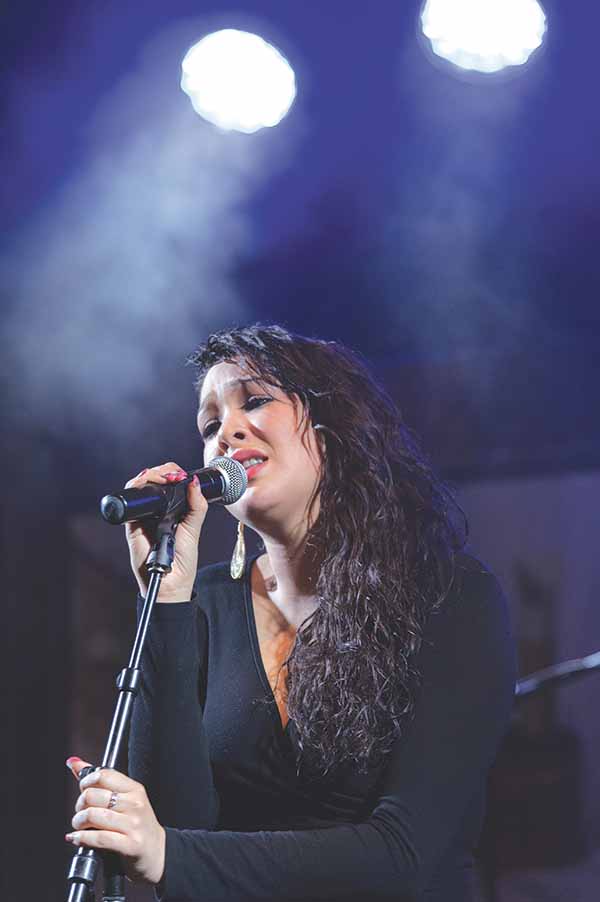 Mariame Hasni has been singing for as long as she can remember. And it shows: she has an outstanding, powerful voice, one that has been mesmerizing Cree and non-Cree audiences for years.
Mariame Hasni has been singing for as long as she can remember. And it shows: she has an outstanding, powerful voice, one that has been mesmerizing Cree and non-Cree audiences for years.
But that voice may have remained hidden, as Hasni once tried to hide her talent.
“I got discovered in the bathroom,” she explains over the phone, having just tucked in her two young children.
It was something she did often – take a bathroom break in order to sing. Except this time, she took a little too long.
“My teacher came to check up on me and caught me,” Hasni recounted. “And after that, she really pushed me to perform. That’s how it all started, just from a teacher who really believed in me.”
Hasni is currently recording her debut album, produced with the support of the Cree Native Arts and Crafts Association. CNACA awarded her its “rising star award” last year.
CNACA project and event organizer Darryl Hester designed last year’s event, and is still enthused by the Hasni’s performance (which can be seen on YouTube).
“She has a unique voice,” says Hester, himself an accomplished musician. “She reminds me of Rihanna a little bit – but a Cree Rihanna.”
Hester and CNACA have been working with Hasni since awarding her the prize.
“We want to assist her in going further with her career, to give her a hand in achieving her goals. So we’re supporting her financially through producing her own six-song EP,” he said.
Hasni is indeed a fan of Rihanna. But she draws on a number of other influences, including Celine Dion. Her stepmother used to play Dion around the house, and Dion’s impressive vocal range and emotion spoke to Hasni at a young age.
Another influence is the Mexican-American singer Selena Gomez. Hasni says she loves the sincerity and warmth of her music, how Selena was “goofy” and “humble”.
She also says Selena’s music resonates with her on a personal level because Selena struggled with issues of identity as an American pop star who was perceived by many white Americans as Mexican – despite not being able to speak Spanish.
Hasni speaks and understand Cree, however, even though she grew up in a mixed family with an Algerian father and a Cree mother in Montreal.
Like Selena, Hasni always felt like a bit of an outsider: “I always felt different. I always felt like an outcast growing up, no matter where I went.”
Hasni’s music allows her to connect with a wide range of people. She has performed in Chisasibi since the age of 15, nearly every summer and Christmas break, when she travels there to spend time with family.
She reckons she’s visited and sang in nearly every Cree community. It’s something she loves to do.
There is, of course, a lot to love: the adoration of fans, the ability to connect with people and their spirits. Connecting with young audience members is the high point of her performances.
“I remember being that kid in the crowd, watching singers perform, and saying one day I’m going to do that. Performing makes me remember where I came from, where I’ve been,” she says.
In the final stages of recording her album, Hasni is only willing to talk in broad strokes about the project. There are love songs, break-up songs, and songs that intimately reflect deeply felt personal experience. That’s all she will share: “I would rather keep it a secret right now.”
For a taste of her work and potential, you can see her 2013 CNACA performance: www.youtube.com/watch?v=8Mpwms7ViQE


